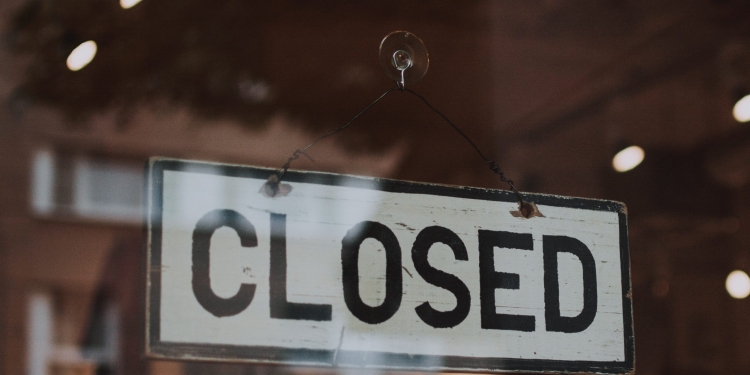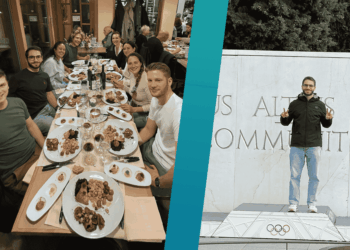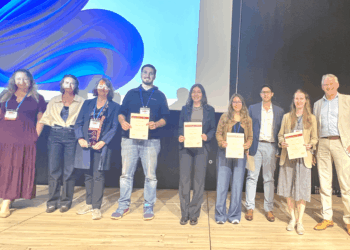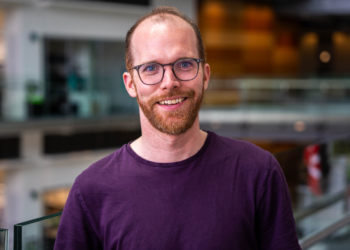The cancer research community is reacting and adapting to the restrictions placed on us by the COVID-19 outbreak. We’ve asked EACR members to contribute articles and advice on the theme of ‘How to be a cancer researcher during coronavirus’.
I know how it is. One moment you’re storming out of the lab because your western blot has inexplicably failed, swearing you’ll never set foot in that place again. Then suddenly you’re told the whole lab’s shutting down. You won’t be able to do another experiment for months. Months without a pipette – how will you survive?
While your inexplicable addiction to moving small amounts of colourless solutions from one tube to another can’t entirely be cured – there are steps you can take to survive your long stretch in the slammer.
Learn a new skill
All this pipette-free time is the ideal opportunity to hone some new, career enhancing skills. For example, my university is streaming a one-hour-a-day bioinformatics course and there are countless online equivalents. Get good enough and you’ll be able to start experimenting from home, without even having to find a decent antibody for your irksome 312kDa membrane-bound, virtually unpurifiable protein.
Have a schedule (and stick to it)
 It’s easy to let things drift when you’re home all the time. You forget simple things; like what day it is, when you got up, what your name is. So, get organised. Start work at the same time each day. Get dressed in work clothes. Make sure you have a “work-space”. Plan daily and weekly tasks. Also make sure you have non-work time. Finish at your normal time. Take weekends off. Make yourself adventurous dinners.
It’s easy to let things drift when you’re home all the time. You forget simple things; like what day it is, when you got up, what your name is. So, get organised. Start work at the same time each day. Get dressed in work clothes. Make sure you have a “work-space”. Plan daily and weekly tasks. Also make sure you have non-work time. Finish at your normal time. Take weekends off. Make yourself adventurous dinners.
Keep in touch
Have virtual meetings and schedule them regularly. Nothing focuses the mind better than knowing you’ll have to justify how you spent the last few days. And no, your clan having won three clan battles does not represent a productive week.
Go to the (virtual) pub
Friday night can still be pub night. Get everyone together electronically and sip on an ice-cold beer, a dry martini or the tipple of your choice. I recommend getting a background pub noise app (remarkably, there are several of them). Then, for that genuine busy pub feel, get someone to pop in occasionally to jostle you and spill your beer. Bonus pub challenge game – See if you can manage to go five minutes without mentioning the word “virus”.
Take up a hobby
![]() All work and no play makes Jack/Jill a dull cancer researcher. Learn something new – sew your own clothes, learn to speak Flemish, take up playing the bagpipes, practice the downward facing dog (apparently it’s a yoga position). I’ve started doing some artwork, such as this self-portrait:
All work and no play makes Jack/Jill a dull cancer researcher. Learn something new – sew your own clothes, learn to speak Flemish, take up playing the bagpipes, practice the downward facing dog (apparently it’s a yoga position). I’ve started doing some artwork, such as this self-portrait:

And don’t worry if you are not as good as me – apparently, I’m a bit of a natural.
Children
Being at work can have many problems, but screaming children, demanding to be played with, is not usually one of them. If you’ve got older children, like mine, this is not a problem. Teenagers spend their lives locked away in their bedrooms anyway (to be honest, I’m not even sure they’ve noticed that we’re in lockdown), but little ones are trickier. If you’ve got someone else to help look after them, then split the care into chunks – long enough to get something meaningful done, but not so long that they’ll get bored. If it’s just you, then basically you’ve had it. But look on the bright side, the one thing worse than kids that want to play with you all the time, is when they get to the age that they don’t want to play with you at all – enjoy it while it lasts.
Make an isolation themed parody song
It’s all the rage. I’m doing one based on Simon and Garfunkel’s The Sound of Silence:
And in the computer light I saw
Ten lab members, maybe more
Mouths moving without speaking
People listening without hearing
People who forgot to turn the volume up on skype
And still remain
Stuck in the meeting of silence
You could be an overnight YouTube sensation – and considering the likely squeeze on grants post-coronavirus, you’ve got to look into all possible funding streams.
[td_smart_list_end]
But most importantly, of course, stay safe. Keep your family safe. Whenever we finally get back, your faithful pipettes will still be waiting for you.

About the author:
Gordon Strathdee obtained a PhD from Thomas Jefferson University, Philadelphia. Then headed, via a post-doc in his hometown of Glasgow, to Newcastle University, where he runs a research group investigating ways to target epigenetic changes in cancer.









